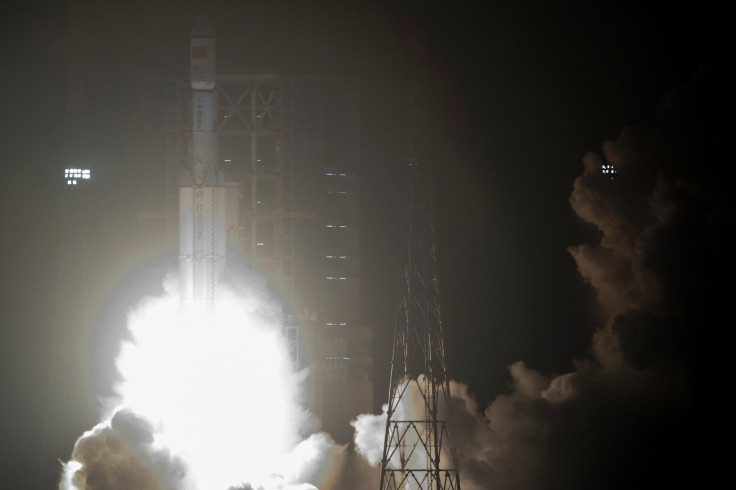Chinese Space Program: Tianzhou-1 Cargo Ship Docks With Orbiting Lab Tiangong-2

China’s ambitious space program took another big step forward over the weekend when the country’s indigenously developed Tianzhou-1 cargo spacecraft docked with the Tiangong-2 space station. The unscrewed vessel left Earth aboard a Long March 7 rocket Thursday, and docked with Tiangong-2 two days later.
Tianzhou-1 has a payload capacity of up to six tons, and weighed about 13 tons at liftoff. According to Chinese media reports Sunday, the cargo ship completed its docking with the orbiting space laboratory Taingong-2 at 12:23 p.m. local time (12:23 a.m. EDT) Saturday, Beijing Aerospace Control Center announced. The automated docking maneuver involved five steps: meeting, catching, buffering, closing and locking.
The cargo spacecraft has been designed to stay up to three months in space, and is capable of both resupplying and refueling the space station. The vessel, which has separate capsules for carrying cargo and propellant, is a showcase of Chinese space technology.
The country sent its first astronaut into space only in 2003, a comparatively late entrant to space-faring. However, it has made significant strides in the field since. It landed a rover on the moon — one of the only three countries to have done so — in 2013, even though Jade Rabbit developed problems soon after landing. Two Chinese astronauts also spent a month on the space station in October 2016.
Tiangong-2, along with Tiangong-1 and other component to be launched by 2022, was supposed to have formed Tiangong-3, according to the original plan for the Chinese space station. However, that seems unlikely now that Tiangong-1 has malfunctioned and is expected to fall to Earth sometime this year.
Read: Chinese Satellites Now Have Electric Propulsion With Ion Thruster
The ability to refuel the space station is imperative for astronauts to go aboard the orbiting lab for periods of up to six months at a time, which the Chinese plan to do in about five years’ time.
Tianzhou means “heavenly vessel” in Chinese, while Tiangong translates as “heavenly palace.”
© Copyright IBTimes 2024. All rights reserved.





















